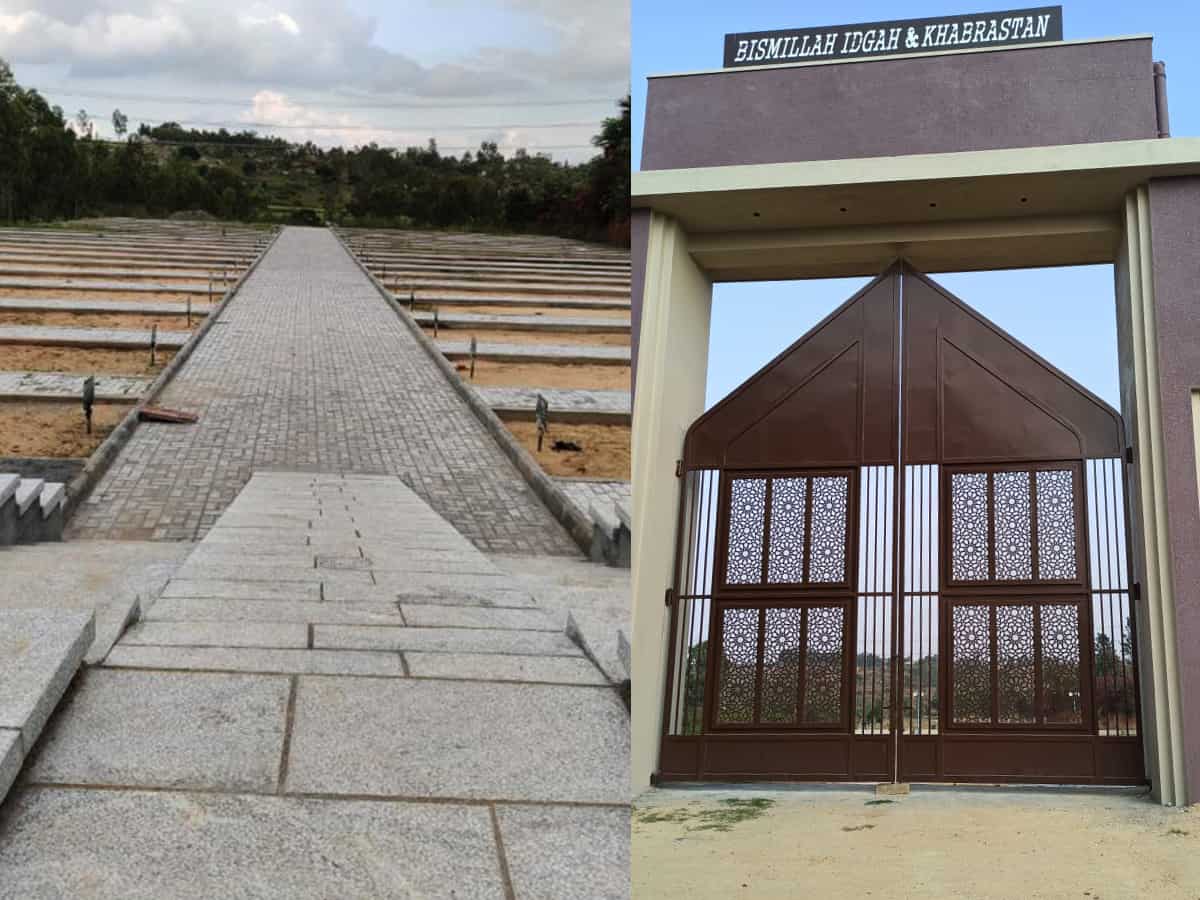Bengaluru can boast of a modern graveyard which does not allow gravestones, canopied enclaves, cement structures over graves and reservation of burial places for the members of the specific families. The 8-acre graveyard named “Bismillah Qabrastan and Eidgah” has come up during the last eight years in the southern outskirts of the city.
The work on the eco-friendly graveyard began in 2013 when need arose for new burial grounds in the southern parts of the expanding metropolis. The Bismillah Eidgah Trust came up with the proposal and Noorul Ameen, a philanthropist from the city donated a 2-acre piece of land worth Rs 60 lakh. The Trust appealed to the city folk and launched a special collection drive during Friday and Eid congregations which brought in more funds. The Trust purchased and added more parcels of land subsequently. Located around 18 km from the city centre, it is expected to accommodate around 3,000 graves when full. “However, the same space can be used and reused after that,” he added.

Syed Tahsin Ahmed, a retired Karnataka Administrative Services (KAS) official, who is secretary of the Trust, said there was a longstanding need for a new Muslim burial ground in the southern parts of Bengaluru. The old burial grounds had filled up due to pucca structures and families carving up exclusive areas for burial of their members. The Jayanagar Qabrastan for which the land was donated by the erstwhile Mysore Maharaja, had been closed for fresh burial around 1975 as the space got exhausted due to fixing of plaques over the graves. It was situated outside the municipal boundaries when the land was gifted for the purpose by the princely administration. The city has grown far beyond it and the civic administration banned the fresh burials.

Ahmed said, the first phase of the graveyard with space for 500 graves has gone operational since July 2020 when the first burial took place. The entire area has been neatly marked and site numbers are allotted for each burial and the data is stored on a computer. A 12 ft. wide tiled road runs along the entire length of the graveyard while cross roads split on its right and left flanks after every two rows of sites for graves. Thus each rectangular site can take 24 grave sites. “Visitors or those coming with funerals need not jump over the grave, but can access each site through a 6 ft. wide cross-road. Those visiting the graves on special occasions like Eid or Shab-e-Barat can identify the graves by site nos., and date of burial available with the data centre of the graveyard management office,” he pointed out.
The graveyard recently threw open a ghuslkhana for a funeral bath for bodies as people in congested mohallas and small homes do not find facilities for bathing of bodies prior to funeral. It offers separate facilities for corpses related to males and females. A musalla for funeral prayers has also been constructed. The 120 ft. by 80 ft. building also has a waiting hall for visitors.

The graveyard has erected fencing from three sides while the southern side has a natural elevation of land which safeguards it from encroachment. All streets have been provided with floodlights and it is proposed to install CCTV for protection of the territory. Two borewells provide water for the ghuslkhana and the irrigation of trees on the site.
The management has planted 200 trees of guava, mango, jackfruit, banana, and 84 coconut trees. Teak trees have been planted along the fencing that runs by the roadside. Since the trees were planted at the very inception of the project, the management could take first of its mango harvest which earned Rs. 10,000 revenue this year. The management currently has a two-member staff consisting of a watchman and a gravedigger. But more hands would be needed as all six phases of the graveyard will become operational in future.
Ameer-e-Shariat Maulana Sagheer Ahmed Rashadi dedicated the ghuslkhana during a prayer session last month. The modern facilities have already won wide acclaim for the facility from several quarters.
M A Siraj is Bengaluru based seasoned writer and journalist.

